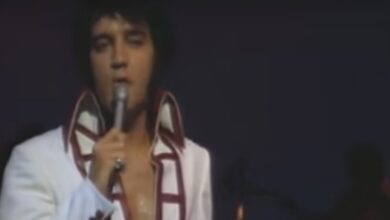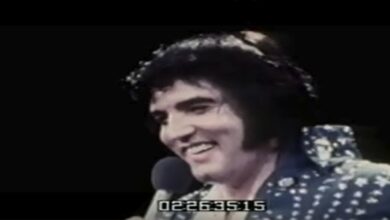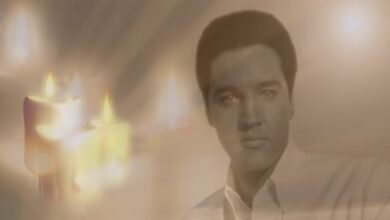This is among his most overlooked tracks, bearing a sound reminiscent of Jailhouse Rock
“Dixieland Rock” is a vibrant musical piece featured in the 1958 Elvis Presley film “King Creole.” This song stands out not only for its catchy melody but also for the way it showcases Elvis’s dynamic performance and the broader excitement surrounding rock and roll during that era. Written by Aaron Schroeder and Rachel Frank, the song encapsulates the lively and carefree spirit that characterized the burgeoning rock and roll scene of the late 1950s.
In “King Creole,” Elvis portrays Danny Fisher, a young man with aspirations of becoming a singer, navigating the challenges of life while working in a bustling New Orleans nightclub. The film serves as a perfect backdrop for “Dixieland Rock,” emphasizing the vibrant atmosphere of the city, rich in musical history and culture. The nightclub setting allows for high-energy performances, and “Dixieland Rock” is a key moment that highlights Elvis’s talents, as he delivers not just a vocal performance, but an entire stage presence that captivates the audience within the film and those watching it.
The lyrics of “Dixieland Rock” express a jubilant celebration of life, music, and dance, drawing listeners in with its infectious rhythm and unforgettable hooks. Elvis’s nonchalant charisma adds to the charm, combining a sense of rebellion that many young people identified with during the rock and roll revolution. Moreover, the song integrates elements of traditional Southern music, further enriching its sound and connecting it to the roots of American music.
Elvis’s performance of “Dixieland Rock” portrays not just his vocal prowess but also his ability to connect with audiences. The song’s upbeat tempo invites dance, an essential component of rock and roll music, and maintains an electrifying energy that engages fans both onscreen and off. This performance style helped solidify Elvis’s status as a cultural icon and a driving force in making rock and roll a mainstream phenomenon.
The film “King Creole” itself received critical acclaim and has been praised for its incorporation of music into its narrative seamlessly. The soundtrack, featuring several original songs, reflects the diverse influences on Elvis’s music—from blues to rhythm and blues—solidifying his position as a versatile artist able to adapt various genres to create something unique. “Dixieland Rock” is just one example of how he successfully blended these influences.
Elvis Presley, born on January 8, 1935, in Tupelo, Mississippi, became one of the most significant cultural figures of the 20th century. His blend of musical genres, charismatic stage presence, and innovative style revolutionized the music landscape. Rising to fame in the mid-1950s, he captivated audiences with his singles, television appearances, and films, establishing an enduring legacy that continues to influence artists today.
Throughout his career, Elvis released numerous hit songs, showcasing a variety of musical styles and emotional themes. Songs like “Heartbreak Hotel,” “Jailhouse Rock,” and “Hound Dog” solidified his reputation as the “King of Rock and Roll.” His ability to convey raw emotion, combined with his iconic voice, made him a beloved figure across generational divides.
Even after decades since his peak, Elvis’s music remains relevant, celebrated for its emotional resonance and cultural impact. Music that captures the essence of joy and celebration, like “Dixieland Rock,” demonstrates why he remains an enduring symbol of artistic freedom and youthful exuberance, inspiring countless musicians in the years to follow.
“Dixieland Rock” serves not only as a testament to Elvis’s musical skill but also as a cultural artifact that reflects the spirit of an era. The harmonic fusion of differing musical styles prevalent in this song illustrates how Elvis was a bridge between various genres, uniting fans under the shared love of rock and roll.
In conclusion, “Dixieland Rock” is much more than just a catchy tune; it is an emblem of Elvis’s significance in music history. The song, along with his performance in “King Creole,” highlights the joy, excitement, and cultural shifts that accompanied the rock and roll movement. Elvis’s legacy, symbolized through songs like this, continues to thrive, ensuring that his contributions to music and popular culture will not be forgotten.



